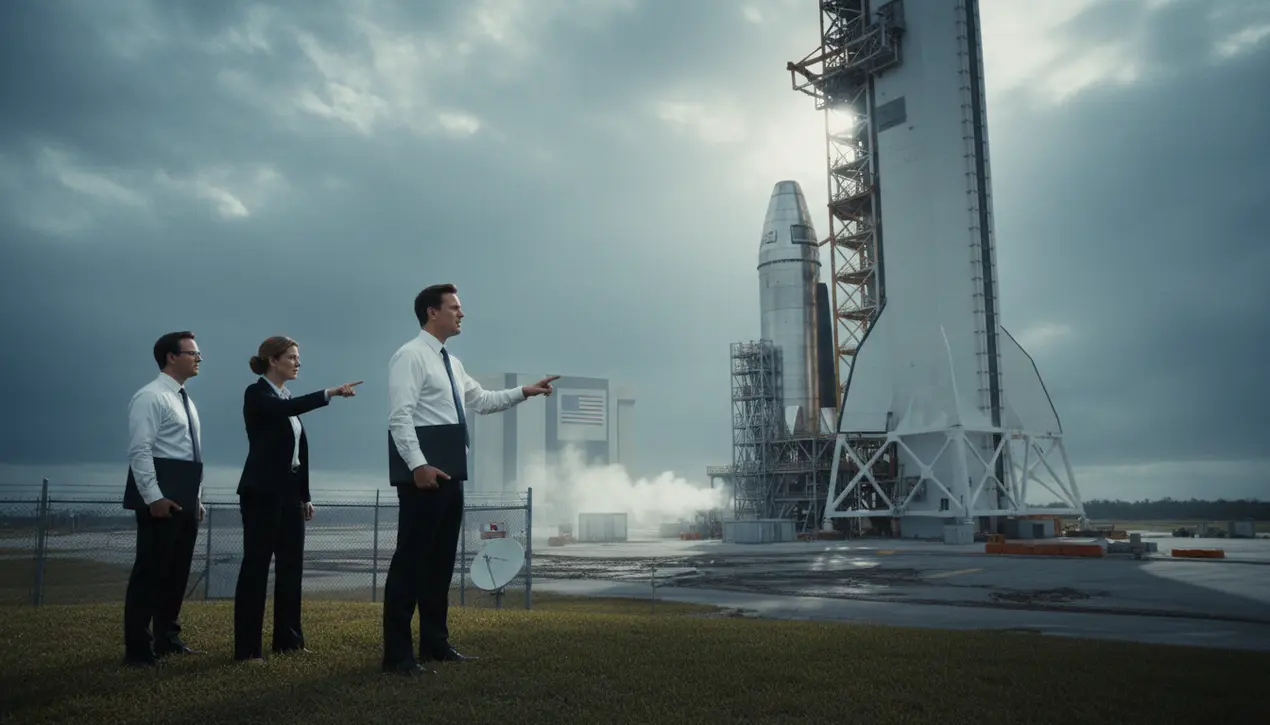
Sciencespace & astronomySpaceX and Private Space
Rivals object to SpaceX’s Starship plans in Florida.
TH
Thomas Green
16 hours ago7 min read4 comments
The aerospace industry's competitive landscape is heating up, with rivals raising significant objections to SpaceX's ambitious plans to launch its colossal Starship vehicle from Florida. This isn't just corporate squabbling; it's a fundamental clash over the future of space access, safety protocols, and the very infrastructure that will support humanity's push into the cosmos.The core of the opposition revolves around the unprecedented scale and power of Starship, a fully reusable spacecraft and super heavy-lift launch vehicle designed for Mars and beyond. Unlike traditional rocket fuels, Starship utilizes a liquid oxygen and methane propellant combination, a choice lauded for its efficiency and potential for in-situ resource utilization on other planets but now under intense scrutiny.The provocative statement from a competitor, declaring they will 'continue to treat any LOX-methane vehicle with 100 percent TNT blast equivalency,' is not merely a technical point but a strategic salvo in a high-stakes regulatory battle. This equivalency model, while a standard conservative practice in risk assessment for conventional rockets, is being applied to a vehicle of a completely different magnitude, potentially creating an insurmountable regulatory hurdle for SpaceX's operations at Kennedy Space Center.The implications are profound. Establishing a launch site for Starship requires extensive environmental and safety reviews, and if competitors can successfully argue that the potential explosive yield is analogous to a massive TNT detonation, the required safety exclusion zones could become so vast as to be logistically and politically impossible to implement in a crowded airspace like Florida's Space Coast.This would effectively force SpaceX to concentrate all its Starship operations at its remote Starbase facility in Boca Chica, Texas, a move that would have significant economic and strategic consequences for Florida's long-standing dominance in American spaceflight. The historical parallel is striking; this evokes the fierce competition between aviation pioneers in the early 20th century, where technical standards and safety regulations were often weaponized to stifle innovation from rivals.From an orbital mechanics perspective, Florida's geographical advantage for certain launch trajectories to valuable orbits is a key asset that SpaceX is loath to forfeit. The outcome of this dispute will set a critical precedent, influencing not just SpaceX but also companies like Blue Origin and Relativity Space, which are developing their own next-generation methane-fueled rockets. It forces a necessary but difficult conversation: are our existing regulatory frameworks, built for the Apollo and Space Shuttle eras, agile and sophisticated enough to govern the new wave of massively scalable, rapidly reusable launch vehicles? The path we choose now will either catalyze a new golden age of space exploration or constrain it within the safety paradigms of a bygone era, determining whether our journey to Mars launches from the historic pads of Florida or remains solely on the isolated shores of South Texas.
#SpaceX
#Starship
#Rivals
#Objections
#Rocket Launch
#Safety Concerns
#featured
Stay Informed. Act Smarter.
Get weekly highlights, major headlines, and expert insights — then put your knowledge to work in our live prediction markets.
Related News
Comments
Loading comments...
© 2025 Outpoll Service LTD. All rights reserved.